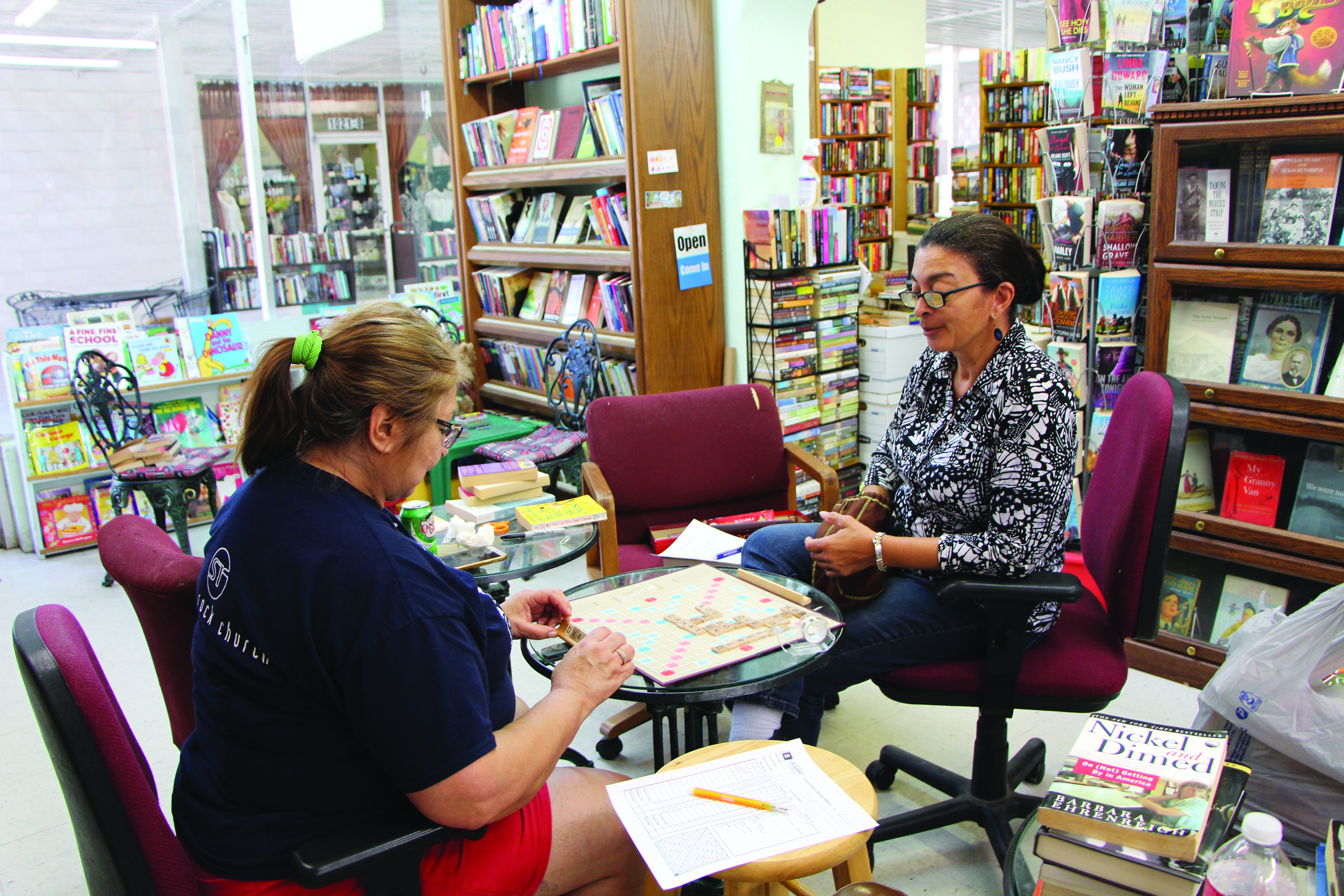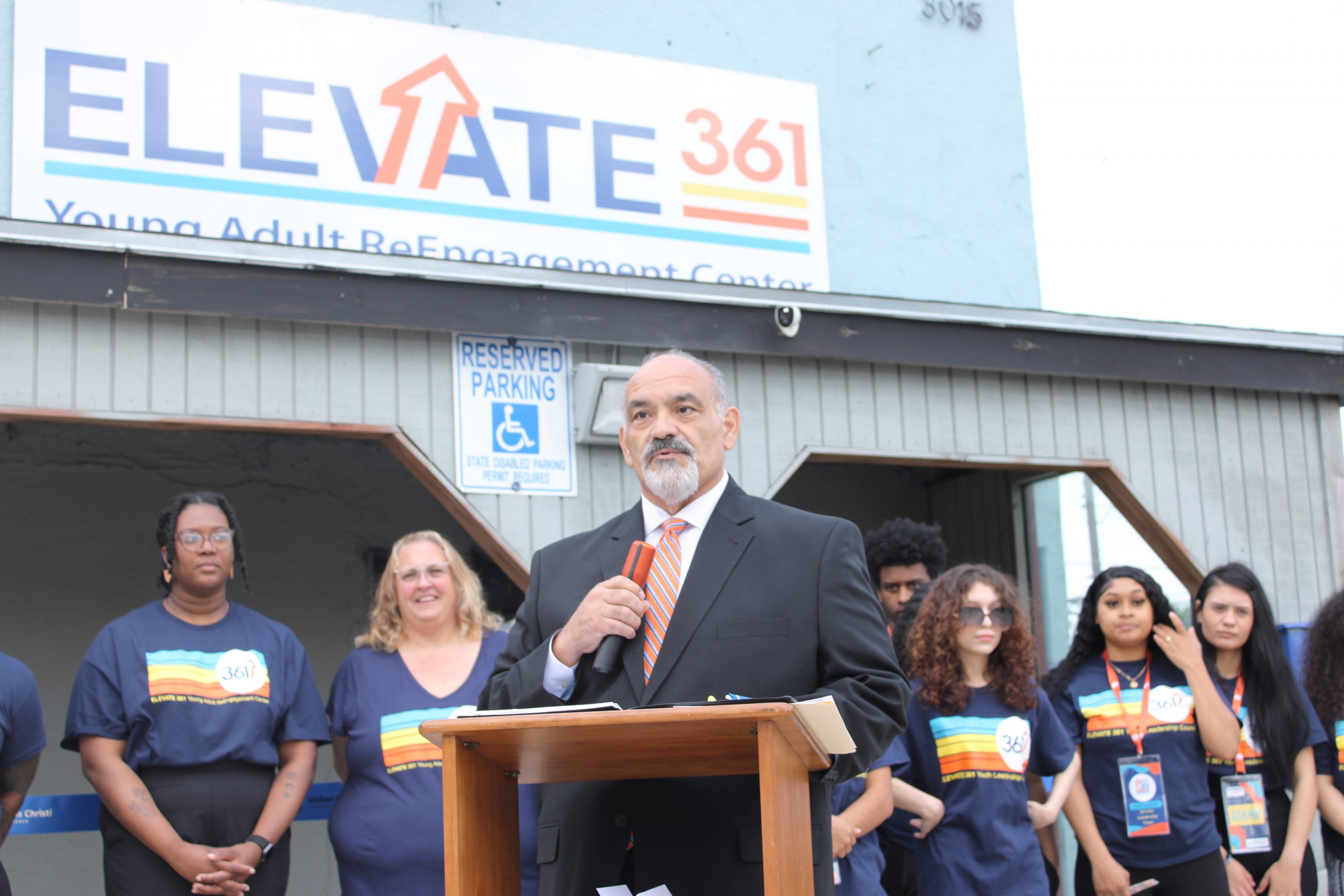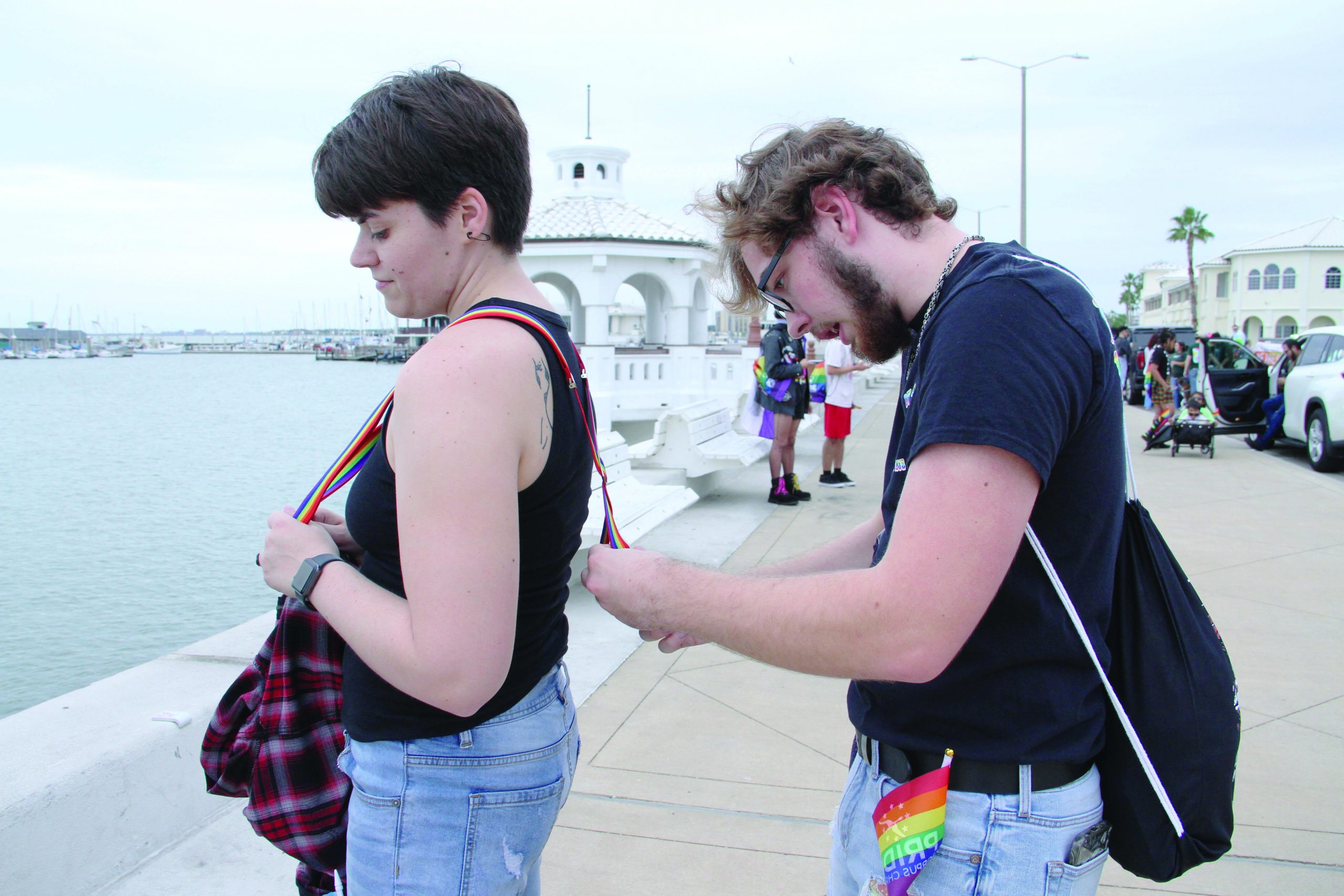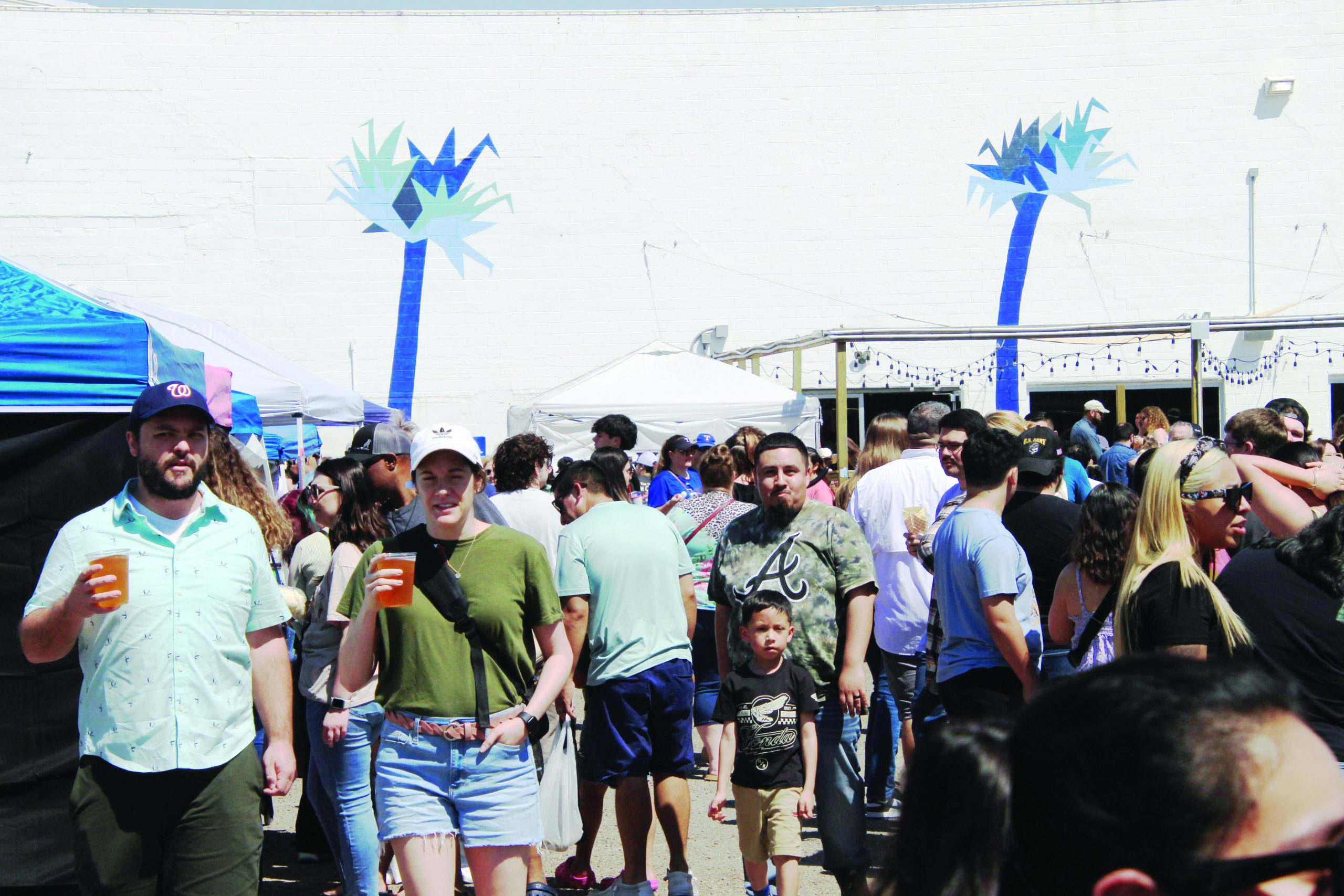The bell on the front door rings out the announcement you have arrived then a voice calls out from behind an ocean of books, on shelves, in boxes and stacked along the sides: “Hello there! I’ll be right with you.”
A fastidious, bespeckled woman emerges from her well-planned path through the stacks of literature. Jennifer Hay welcomes you as she does all visitors to the store she owns and operates. Books Ink looks like you would expect from a independently owned bookstore.
“I have been an avid reader my entire life,” Hay said. “A lot of readers want to own a bookstore at some point.”
When Hay, fresh out of the Navy, found out that Books Ink in Portland was up for sale, she thought it was meant to be. She knew owning a bookstore was going to be a challenge, but she was willing to give it her best shot. Running the store requires constant effort, and Hay doesn’t have much time off.
“This is a labor of love,” she said.
Hay suffered personal losses after Hurricane Harvey. The store had to be closed for a while until she could get back on her feet. Even so, rent on the building still needed to be paid and Hay still was making payments on the sign out front. Funds were quickly running out, and not nearly enough were coming in.
When it was starting to look like things might be taking a turn for the worse, Hay looked online to see if anyone else had gone through the same issue with their business and made it through.
“I found a story about a man who was having a very hard time keeping his store open about 10 years ago, but who raised enough money to keep everything running for eight years after that,” she said. “I hunted this man down in Wisconsin and gave him a call. I explained that I was in the same situation that he had been in and asked if he could help me.”
The man advised her to spread the word about her situation and try to get the community to act. The easiest way to do this was with fliers. They could easily be handed out to anyone who came into the store, left at businesses or passed from person to person. It was a long shot, but Hay was willing to try about anything.
“If I had been running any other type of business, this method would not have worked,” she said. “Fortunately, the community came together and helped me out. They didn’t want to lose their bookstore.”
Many people came in and purchased gift certificates, signed up for the book-of-the-month either for themselves or as a gift for someone else, or even made donations to the store. It wasn’t just the local community that helped.
“There was people as far away as California,” Hay said. “There were people I hadn’t seen in five years who wrote crazy checks. It was a tremendous response, and I was impressed.”
Some people even sold blood and donated the money to the store.
“That’s not something that happens anywhere else,” Hay said. “It brought tears to my eyes.”
This boom in business brought in enough money that Hay was able to get back on her feet to keep the business afloat.
“There was enough of a response and enough people became aware that you can’t just feel good about a store, but you need to patronize it, or at least encourage with some financial support, to help stores keep open,” she said. “That’s something that we small businesses face every day. The hurricane just made it a little more critical.”
Customers like Catherine Underwood agree that keeping the store open is important to the community.
“If we lost Books Ink, we’d definitely miss it,” Underwood said. “It’s such a nice place to just hang out. And then we’d all have to go into Corpus to get books.”
The store’s Scrabble nights, book club and other events are a few ways that people can get involved in the longevity of the store. The more people who know about the store, the better. One of Underwood’s grandchildren introduced her to the store.
“I joined the book club, met new people, and was encouraged to read books that were not my normal,” she said. “And Jennifer’s service is so much more personal. If she gets a book she knows I will like, she’ll hold on to it for me.”
Though the store has been doing well ever since, Hay still faces challenges associated with running a small business in today’s economy, especially demographics and location. Because the store is in the back corner of an alcove of a shopping center, it is not easily visible to potential customers. A couple years back, Hay purchased a sign to go in the parking lot, which makes it a little easier to find — but not much.
“Even if customers can find the store, demographics still make it a struggle,” Hay said. “Out of every 100 people, only two actually read.”
Because Books Ink is the only bookstore on the Portland side of the Harbor Bridge, Hay has a larger pool of potential customers than most. Many people bring in business not only for this reason, but also because Hay provides personal service.
“If you’re in a bookstore, you ought to know books,” she said. “I go into some bookstores and see employees leading around customers in an attempt to find a specific book or author that they have no idea where to find. I know where each and every book is in my store, and if you ask me if I have a certain book, I can tell you.”
Another thing that attracts customers to the store is the prices. Compared to larger chain bookstores like Barnes and Noble, all books are sold at half the print price, with the exception of a few especially old or rare books. Hay also has a few carts outside with discounted books at $2 each or three for $5. This draws in people who might just be passing by but are drawn to sales.
New material flows through the door almost constantly in the hands of potential and regular customers alike. Hay does not buy books from customers, but instead gives them store credit to hopefully persuade them to buy new books or come back again.
“I have had people ask why I don’t discontinue the store credit program in order to make more money from sales, but I will never do that,” she said. “That’s part of what brings people back in time after time.”
Even if the books customers bring in are not exceptionally popular, Hay will still take them in exchange for store credit. As a result, the store ends up with more books than it can handle. Hay donates books to the Portland library book sale to get rid of surplus stock. If she has too many to wait until then, she will sometimes even donate to Goodwill.
“The store is really small, and I just don’t have room for all the books that come in on top of all the ones I already have,” she said.
Even though the store is small, cyber defense major Mickhailah Engelking says it has a cozy feel.
“It gives me the feel of the libraries you see in older movies,” Engelking said. “Books fill every inch of that store, which gives it a unique décor. The store even smells like well-paged-through books and fading ink.”
Engelking says the prices Hay sets are much more agreeable than those of large chain stores.
“You also get more of a sense of what past readers enjoyed,” she said. “So in some ways it helps you branch out without even trying.”
Independent bookstores like Books Ink have been making a comeback in the past 10 years. From 2009 to 2014 the number of independent bookstores increased by 27 percent.
They also boost the local economy. For every $100 spent in a locally owned store, $73 stays in the local economy, as opposed to $43 from chain stores. These large stores have one major advantage over independently owned stores, though — advertising.
“As a small business, funds for advertising are miniscule,” Hay said. “Word of mouth is the best advertising. I tell everyone that I have a little bookstore in Portland.”





